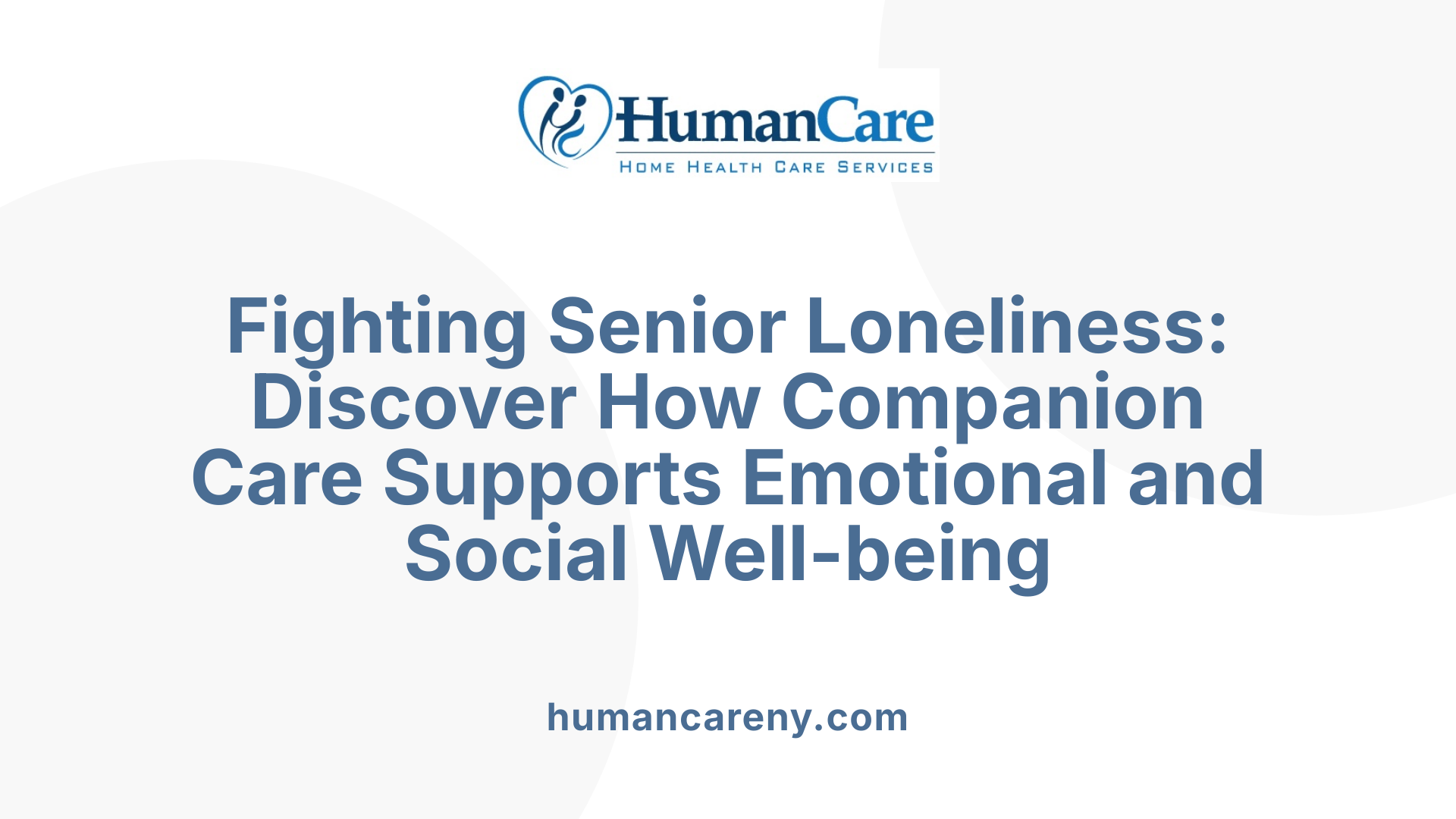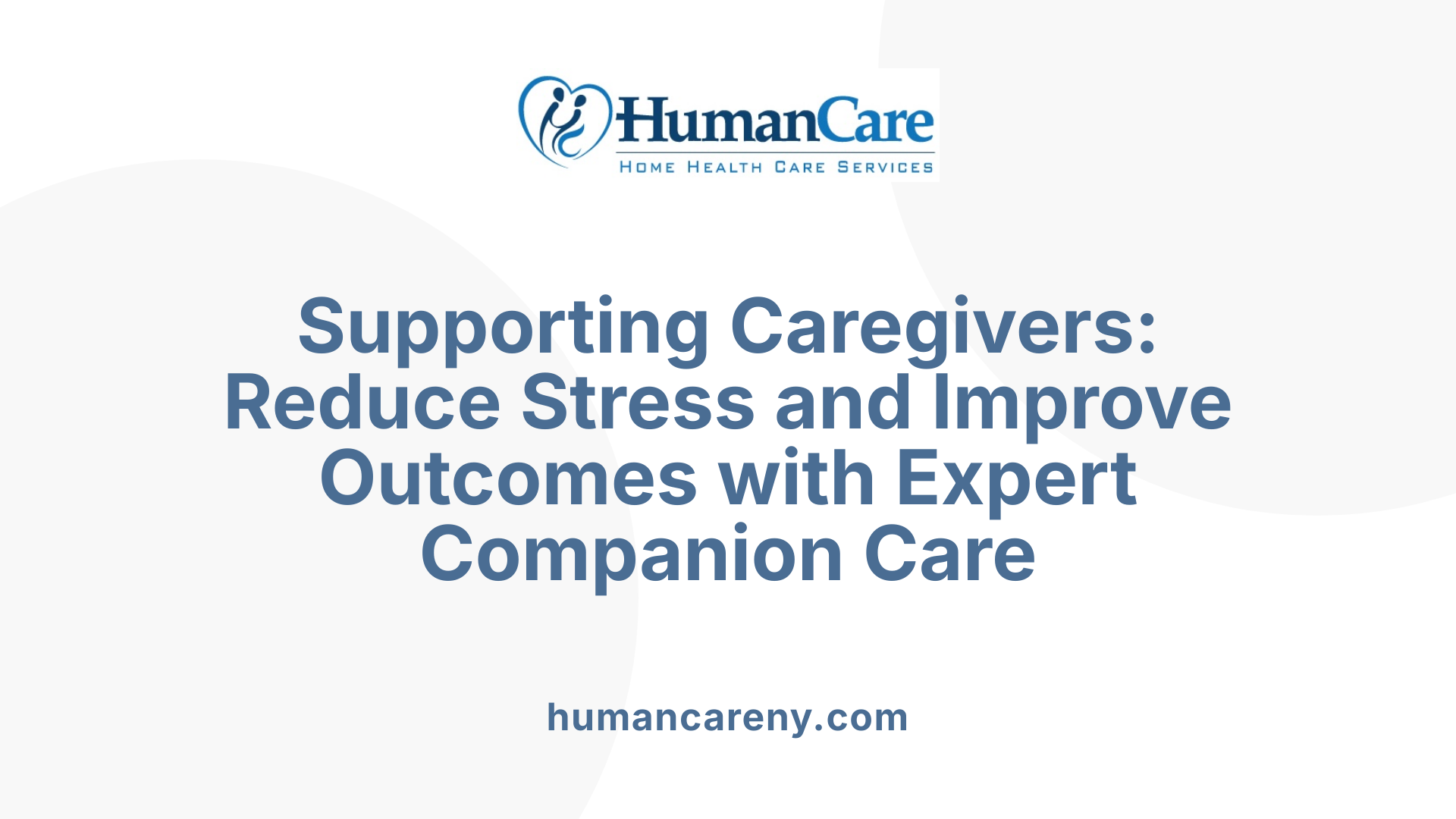Addressing Senior Mental Health Through Compassionate Support
As the elderly population grows, addressing mental health challenges such as loneliness, depression, and anxiety becomes increasingly important. Companion care, an in-home, non-medical service that offers emotional and social support, has emerged as a crucial solution in enhancing the mental health of seniors. This article explores how companion care fosters emotional well-being, combats social isolation, and supports both seniors and their families.
Combating Loneliness and Social Isolation in Seniors

How does loneliness impact senior mental health?
Loneliness and social isolation are prevalent among seniors, affecting nearly a quarter of adults aged 65 and older. These conditions can lead to serious mental health concerns such as depression and anxiety. Beyond emotional distress, loneliness increases the risk for stroke, heart disease, and cognitive decline, including dementia, highlighting the importance of addressing these issues promptly.
What role does companion care play in providing regular social interaction?
Companion care offers vital emotional and social support through regular, personalized visits. These non-medical services focus on friendship and engagement, helping seniors combat feelings of isolation. Activities like conversations, walks, games, storytelling, and shared meals foster meaningful interaction, enhancing seniors’ mood and mental well-being.
Which health risks are connected to social isolation in the elderly?
Social isolation significantly increases the risk of adverse health outcomes such as cardiovascular diseases, cognitive impairment, and mental health disorders. Additionally, it can lead to decreased physical activity and poor self-care, further diminishing overall health and quality of life.
What activities are offered to foster engagement?
Companion caregivers tailor activities to seniors’ interests and capabilities, including art classes, music sessions, technology workshops, and community outings. These activities provide mental stimulation, encourage socialization, and maintain cognitive function. By supporting hobbies, planning trips, and organizing social events, companion care enriches seniors’ daily lives and promotes independence.
| Aspect | Description | Benefits |
|---|---|---|
| Emotional Support | Regular visits and meaningful conversations | Reduced feelings of loneliness and improved mood |
| Social Interaction | Group activities, outings, and games | Enhanced cognitive function and social engagement |
| Personalized Activities | Tailored based on individual preferences | Increased motivation and participation |
| Health Benefits | Reduction of risks related to isolation (e.g., heart disease) | Improved physical and mental health outcomes |
Emotional Support: Building Trust and Preventing Mental Health Issues

Companion care’s role in emotional support
Companion care provides crucial emotional support that deeply influences seniors' mental health. By offering consistent companionship, caregivers help reduce feelings of loneliness and isolation, which are common among the elderly and can trigger depression and anxiety.
Trust-building between companion and senior
Establishing trust is fundamental in companion care. Through personalized interactions and empathic communication, companions form meaningful relationships with seniors, creating a safe space where emotional needs are understood and met. This trust encourages seniors to share their feelings and concerns, fostering emotional resilience.
Prevention of depression and anxiety through companionship
Regular engagement with a caring companion acts as a preventative measure against mental health issues. Activities tailored to the senior's preferences—such as walks, art classes, or technology workshops—stimulate cognitive function and promote social interaction. These elements work together to lower the risk of depression and anxiety, contributing to a more positive outlook on life.
Alleviation of feelings of loneliness and depression
Companion care directly addresses loneliness by providing ongoing social interaction through conversations, games, and shared experiences. This connection improves overall emotional well-being and reduces the sense of isolation that often leads to depression. Family members also gain peace of mind knowing their loved ones receive affectionate and attentive care.
Tailored Activities and Mental Stimulation

Personalized Care Plans Based on Senior Preferences
Companion care services prioritize personalization to enhance seniors' mental well-being. Care plans are carefully crafted considering each individual's interests, preferences, and history. This personalized approach ensures that activities resonate meaningfully with the senior, fostering engagement and emotional connection.
Engagement Through Walks, Art Classes, and Technology Workshops
Companions facilitate a variety of activities such as leisurely walks, art classes, and technology workshops tailored to the capabilities and interests of older adults. These activities not only promote physical health but also provide enjoyable social opportunities that encourage mental stimulation. For instance, technology workshops help seniors stay connected with loved ones and the wider world, reducing feelings of isolation.
Cognitive Stimulation and Prevention of Decline
Engaging seniors in arts, music, puzzles, and other mentally stimulating activities supports cognitive function and can help prevent or slow cognitive decline. Companion caregivers introduce and encourage these activities regularly, helping maintain sharpness and promoting lifelong learning.
Social Outings and Community Integration
Community outings and social events arranged by companion caregivers integrate seniors into their community, offering vital social interactions. Such participation strengthens social networks, alleviates loneliness, and significantly contributes to improved mental health and overall well-being.
These carefully tailored activities combine to provide meaningful interaction, mental stimulation, and social connection — all crucial in supporting the mental health of seniors through companion care.
Supporting Family Caregivers and Enhancing Overall Care

How Does Companion Care Help Reduce Caregiver Stress and Burnout?
Companion care contributes significantly to easing the stress experienced by family caregivers. By sharing caregiving responsibilities, companion caregivers provide emotional support and assist with daily activities, creating much-needed respite for family members. This break allows family caregivers to recharge, reducing the risk of burnout that comes with long-term, high-intensity care.
What Is the Importance of Shared Caregiving Responsibilities?
The collaboration between professional companion caregivers and family members leads to more balanced care. Shared responsibilities mean family caregivers are not overwhelmed with medical, emotional, and social duties alone. This partnership encourages better health outcomes for seniors and improves the overall caregiving experience for families.
What Positive Psychological Effects Do Family Caregivers Experience?
Engaging with companion care services often brings positive psychological benefits to family caregivers. They report increased confidence, greater personal growth, and strengthened relationships both with the care recipient and within their own family. Knowing that their loved one receives compassionate, tailored care provides peace of mind, which in turn supports caregivers’ emotional well-being.
How Does Respite Care and Collaboration Benefit Families?
Respite care offered through companion services allows family members time for self-care and other personal responsibilities. It relieves emotional distress and reduces anxiety, especially when caring for seniors with complex health needs. This collaborative approach fosters a supportive environment where both seniors and family caregivers feel valued and supported.
| Aspect | Impact on Family Caregivers | Description |
|---|---|---|
| Stress Reduction | Decreased emotional distress | Shared tasks and breaks lower burnout risk |
| Shared Responsibilities | Balanced caregiving | Professional support complements family care |
| Psychological Benefits | Increased confidence and personal growth | Positive emotions arise from trustworthy and compassionate care |
| Respite Care | Time for self-care and reduced anxiety | Enables caregivers to maintain their own health and relationships |
In summary, companion care not only improves seniors’ emotional wellbeing but also provides crucial support for family caregivers, enhancing the quality of care within families.
Safety, Independence, and Quality of Life through In-Home Companion Care

Assistance with daily activities enhancing safety and security
In-home companion care includes helping with essential daily tasks like bathing, dressing, and navigating around the home. This support greatly reduces risks such as falls and accidents, creating a safer living environment for seniors. Companions ensure that older adults perform routine activities with care, which directly enhances their safety and overall physical well-being.
Promoting independence while aging in place
Companion care plays a vital role in allowing seniors to remain in their own homes, maintaining their independence and dignity. Rather than moving to institutional settings, many older adults prefer to stay in familiar surroundings where personalized care meets their unique needs. Companions encourage seniors to carry out tasks independently by offering just the right level of assistance, boosting confidence and self-esteem.
Customizable services adapting to changing needs
Services in companion care are highly flexible and customizable, ranging from a few hours a week to full-time assistance. Care plans are tailored to each senior’s personal preferences, interests, and changing health conditions. This adaptability ensures that as seniors’ needs evolve, companion care continues to provide meaningful support and engagement.
Improvement of seniors’ sense of dignity and self-worth
Regular companionship and meaningful interactions, including hobbies, walks, and social outings, bring joy and purpose to seniors’ lives. Daily support combined with personalized activities fosters a strong sense of respect and dignity. By staying active and socially connected, seniors maintain self-worth and improve their overall quality of life, with companions playing a crucial supportive role.
Integrating Technology and Continuous Improvement in Companion Care
How is technology used in companion care for health monitoring and social connectivity?
Technology plays a vital role in modern companion care by helping maintain seniors' social connections and monitor their health. Health monitoring devices track vital signs and detect potential issues early, providing peace of mind for both seniors and their families. Virtual communication platforms enable seniors to stay connected with loved ones and social groups, especially during times when physical visits are limited. These tech tools help reduce feelings of isolation and support mental well-being.
How do companion care services adapt based on client feedback?
Providers like Absolute Senior Solutions emphasize continuous improvement by actively seeking and incorporating client feedback. This approach ensures that care remains personalized and responsive to changing needs. Regular evaluations and open communication allow adjustments in activities, schedules, and support strategies, fostering enhanced emotional support and overall satisfaction.
How is social contact maintained when physical interaction is limited?
During periods such as health crises or mobility constraints, companion care leverages technology to sustain social engagement. Video calls, online group activities, and virtual workshops replace in-person companionship temporarily, ensuring seniors continue to feel connected. Additionally, caregivers facilitate these interactions and provide emotional support remotely when needed.
How is high-quality tailored care advanced through these methods?
Combining technology with feedback-driven customization enables providers to deliver meaningful companionship tailored to individual interests, preferences, and histories. This blend supports mental stimulation through hobbies, social outings, and personalized activities. Continuous adaptation and technology integration contribute to maintaining seniors' dignity, independence, and improved mental health.
| Aspect | Description | Impact on Seniors' Mental Health |
|---|---|---|
| Health Monitoring Devices | Track vital signs and health metrics | Early detection reduces anxiety |
| Virtual Communication Platforms | Enable video calls and online social activities | Maintain social contact, reduce loneliness |
| Client Feedback Integration | Continuous evaluation and personalization | Services remain relevant and emotionally supportive |
| Technology During Limitations | Online interaction substitutes in-person visits | Keeps engagement consistent despite barriers |
This integration highlights how technology and adaptive practices in companion care empower seniors to maintain active social lives and emotional well-being.
The Transformative Impact of Companion Care on Elder Mental Health
Companion care represents a vital approach to supporting the mental health of elderly clients by addressing loneliness, providing emotional support, and encouraging meaningful social engagement. Through personalized activities and integration with technology, companion care promotes cognitive health and independence while offering peace of mind to families and reducing caregiver burdens. As more seniors strive to age in place with dignity, companion care services continue to evolve, offering adaptable, compassionate solutions that significantly improve quality of life and overall well-being.
References
- The Impact of Companion Care on Senior Mental Health
- The Impact of Companion Care on Senior Mental Health
- Family Caregiving Roles and Impacts - NCBI - NIH
- The Importance of Companion Care
- The Value of Companionship on a Senior's Mental Health
- What are the Psychological Benefits of Companion Care ...



